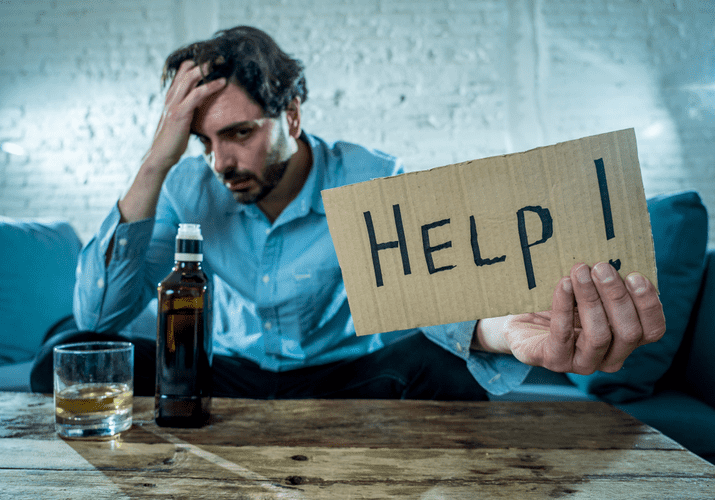She says that alcohol itself is not terribly toxic, but the liver breaks it down into acetaldehyde, which damages DNA and plays a key role in cancer development. And not so long ago there was general consensus that drinking in moderation also came with health advantages, including a reduced risk of cardiovascular disease and diabetes. A new study from the Texas A&M University School of Public Health explores a theoretical framework for implementing an alcohol reduction strategy to support U.S. college students at high risk for alcohol misuse.
Even among the positive studies, potential health benefits are often quite small. In addition, alcohol may reduce the risk of one condition (such as cardiovascular disease) while increasing the risk of another (such as cancer). So it’s hard to predict who might actually benefit and who may be harmed more than helped by alcohol consumption.
U.S. Statistics on Alcoholism
Connecticut’s alcohol-related death rate is slightly below the national average. Alcohol abuse, alcoholism, and alcohol use disorder (AUD) kill over 3 million people each year, accounting for up to 6% of global deaths. By contrast, another 2023 study found similar rates of death between nondrinkers and light to moderate drinkers. Nearly half (49%) of adults leaving treatment were transferred for further treatment, either to community treatment (31%) or to treatment in another secure setting (18%). Psychosocial intervention only was the most common treatment type in the non-opiate only (94%), non-opiate and alcohol (88%) and alcohol only (71%) groups. Over one fifth (22%) of people using opiates received a psychosocial intervention only.
Alcoholism and alcohol use disorders
Here’s a breakdown of the top ten reasons people gave for ordering alcohol delivery. On top of that, 38% of adults—including 47% of Gen Zers and 53% of Millennials—said the option to add alcohol to-go could make them more likely to choose one restaurant over another. IWSR found that premiumization has slowed for premium wine and spirits, with volumes for each decreasing by 3%; premium beer however, did grow its volume by 2% in the same period. In the other major categories, beer volume sales declined 1% but value increased 4%, while the volume of wine sales declined steeply at 4%, part of a long term trend in the industry.
Young people in treatment in secure settings
Sweden, for example, increased the share of wine consumption and, therefore, reduced the share of spirits. Alcohol consumption – whilst a risk factor for a number of health outcomes – typically has the greatest negative impacts when consumed within heavy sessions. This is given as the share of adults aged 15 years and older who have drunk alcohol within the previous year. Adults who regularly felt worried, nervous, or anxious (7.0%) and adults who regularly felt depressed (7.6%) were more likely than adults without these feelings to engage in heavy drinking in the past sober house year (Figure 3). Wyoming has one of the nation’s highest rates of alcohol-related deaths per capita. Underage drinkers are slightly less common among alcohol-related deaths in Washington.
Find Treatment
Nearly two-fifths (38%) of those were discharged after completing their treatment free of dependence, a 16 percentage point rise from 22% in 2015 to 2016, when reporting began. In fact, according to a survey conducted by DoorDash, 58% of consumers said they’d used a third-party app to order alcohol in the past six months. Overall, only 33% of consumers said they were ordering delivery in general more in 2024 than in 2023—meaning that alcohol delivery is growing especially quickly. Riding the coattails of the rise in food delivery services, alcohol delivery has also become much more common in recent years.
In South Africa and Papua New Guinea, more than half of all traffic deaths are attributable to alcohol consumption. Global data https://yourhealthmagazine.net/article/addiction/sober-houses-rules-that-you-should-follow/ on the prevalence and effectiveness of alcohol use disorder treatment is incomplete. The breakdown of alcohol use disorders by gender for any country can be viewed here; the majority of people with alcohol use disorders – around three-quarters – are male. At the end of this topic page, we provide a number of potential sources of support and guidance for those concerned about uncontrolled drinking or alcohol dependency.
These differences necessitate tailored prevention and treatment strategies to better address the impact of alcohol use across genders. The chart shows direct death rates (not including suicide deaths) from alcohol use disorders across the world. The death rates are typically higher in Eastern Europe and lower in North Africa and the Middle East. Long-run data on alcohol consumption from the United States gives us one perspective of drinking since 1850. In the chart, we see the average consumption (in liters of ethanol) of different beverage types per person in the USA since the mid-nineteenth century. The map shows heavy drinkers – those who had an episode of heavy drinking in the previous 30 days – as a share of total drinkers (i.e., those who have drunk less than one alcoholic drink in the last 12 months are excluded).
- This was different from girls, as only 17% of girls in treatment were aged 17 and over.
- The ‘disease burden’ – measured in Disability-Adjusted Life Years (DALYs) – considers mortality and years lived with disability or health burden.
- This compares with 47 years and 44 years respectively for people in treatment in the community.
- This is shown in the charts as the share of adults who had not drunk in the prior year and those who have never drunk alcohol.
- The definitions for a drink in the US are the common serving sizes for beer (12 ounces), wine (5 ounces), or distilled spirits/hard liquor (1.5 ounces).
We must also destigmatize AUD so those who are struggling won’t feel shame asking for help. This article will explore the prevalence, economic costs, and trends of alcohol abuse and alcoholism in the United States. Massachusetts has one of the nation’s lowest rates of under-21 alcohol-related drinking deaths. Kentucky is a statistical anomaly with a low rate of underage drinking deaths and a low rate of chronic causes.
- There were 38 adults who died in 2023 to 2024 while they were in contact with treatment services.
- Therefore, while an exact percentage isn’t provided, it’s reasonable to estimate that around 20% of adults might consume alcohol daily, based on averages and other consumption patterns.
- This group are the most likely to successfully begin treatment in the community, with 56% doing so.
- Moreover, early exposure to alcohol is a critical risk factor for developing AUD.
- Alcohol use disorder (AUD) refers to the drinking of alcohol that causes mental and physical health problems.
Moreover, early exposure to alcohol is a critical risk factor for developing AUD. The number one cause of alcoholism includes a blend of social, biological, and environmental influences, particularly family dynamics and genetics. Early, heavy consumption during adolescence significantly elevates the risk of developing drinking issues later in life. In the chart, we see the prevalence of alcohol dependence versus the average per capita alcohol consumption. There is no clear evidence that high overall consumption (particularly in moderate quantities) is connected to the onset of alcohol dependency. The charts show global consumption of wine, first in terms of wine as a share of total alcohol consumption, and then the estimated average consumption per person.










